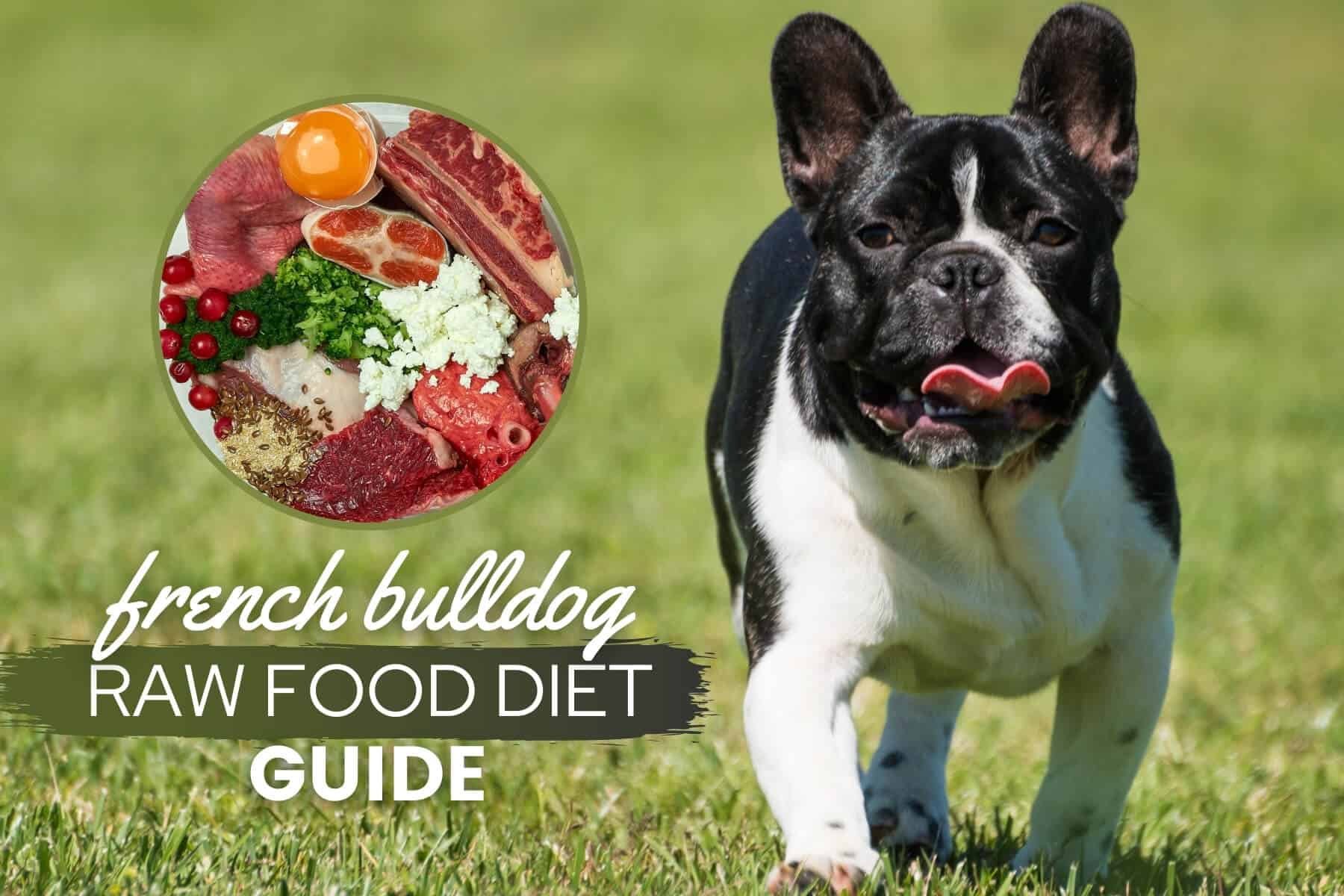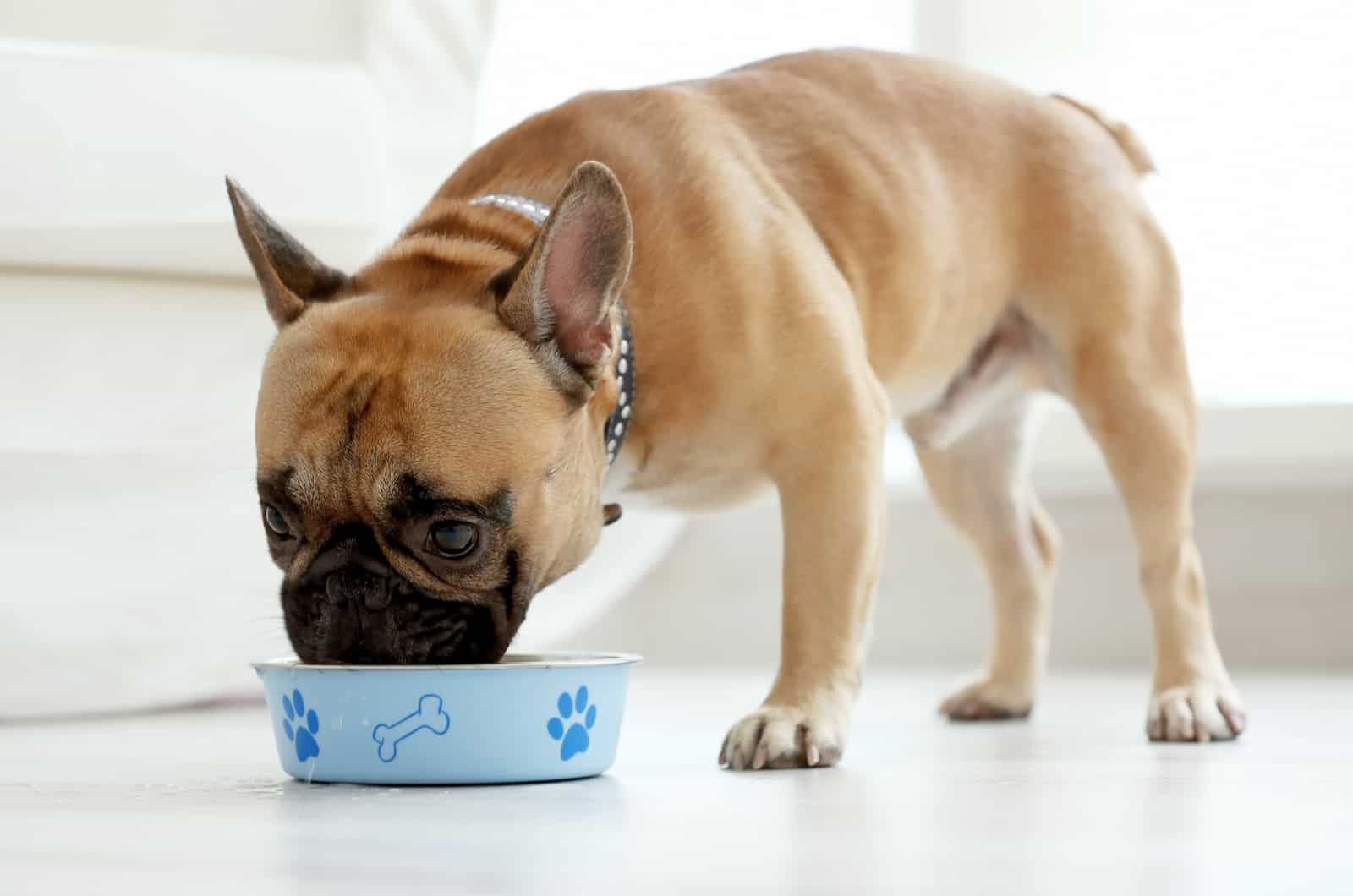Delve into the world of French Bulldog food, where nutrition meets culinary delight. As we explore the unique needs of these adorable canines, we’ll uncover the secrets to keeping them healthy, happy, and full of French Bulldog charm.
From tailored diets for every stage of life to navigating common health concerns, this guide will empower you with the knowledge to make informed choices about your Frenchie’s diet. Let’s embark on this journey to ensure your furry companion thrives on the best possible nutrition.
French Bulldog Nutritional Requirements
French Bulldogs have unique nutritional needs that vary depending on their age, size, and activity level. Understanding these requirements is crucial for maintaining their health and well-being.Essential nutrients for French Bulldogs include:
Protein
Essential for building and repairing tissues, providing energy, and supporting immune function.
Fat
Provides energy, supports hormone production, and aids in the absorption of vitamins.
Carbohydrates
Provide energy, regulate blood sugar levels, and support digestive health.
Vitamins
Essential for various bodily functions, including metabolism, immunity, and bone health.
Minerals
Important for bone health, muscle function, and fluid balance.Tailored diets are important for different life stages:
Puppies
French Bulldogs, with their charming personalities and adorable wrinkles, deserve a diet that supports their unique needs. While exploring food options for your furry friend, consider Nutrisource Puppy Food . Its blend of high-quality ingredients, including real chicken as the first ingredient, provides essential nutrients for proper growth and development.
As your Frenchie transitions to adulthood, Nutrisource offers specialized adult food formulations tailored to their specific needs, ensuring a balanced diet throughout their lives.
Require higher protein and fat content to support their rapid growth and development.
Adults
Need a balanced diet that maintains their weight and energy levels.
Seniors
May have reduced appetites and need diets that are easy to digest and provide essential nutrients.
Common French Bulldog Health Concerns
French Bulldogs are prone to several health issues, including allergies, skin conditions, and joint problems. Understanding these health concerns and how diet can help manage or prevent them is essential for responsible pet ownership.
Diet plays a crucial role in maintaining the health and well-being of French Bulldogs. By providing a balanced and nutritious diet, you can support their immune system, promote healthy skin, and reduce the risk of developing certain health conditions.
Allergies
- French Bulldogs are prone to allergies, including food allergies and environmental allergies.
- Identifying and eliminating the allergen from their diet or environment can help manage allergy symptoms.
- Consider using hypoallergenic food and avoiding common allergens like wheat, corn, and soy.
Skin Conditions, French bulldog food
- French Bulldogs are prone to skin conditions like dermatitis and yeast infections.
- A diet rich in omega-3 fatty acids and antioxidants can support skin health.
- Consider adding fish oil or flaxseed oil to their diet and avoiding foods that can trigger skin irritation.
Joint Problems
- French Bulldogs are prone to joint problems like hip dysplasia and elbow dysplasia.
- A diet rich in glucosamine and chondroitin can support joint health.
- Consider adding supplements or glucosamine-rich foods like bone broth to their diet.
High-Quality French Bulldog Food Options
Choosing high-quality dog food is crucial for the health and well-being of French Bulldogs. Their unique dietary needs require a specific balance of nutrients, calories, and ingredients. Premium dog food brands prioritize using high-quality ingredients, such as real meat, whole grains, and essential vitamins and minerals, ensuring your Frenchie receives optimal nutrition.
Comparative Analysis of French Bulldog Food Brands
Various dog food brands cater to the specific nutritional requirements of French Bulldogs. Here’s a comparative analysis of some top-rated options:
-
-*Royal Canin French Bulldog Adult
Formulated with tailored kibble size and shape for easy chewing, this food contains high-quality proteins, including chicken and fish, to support muscle development. It also includes essential fatty acids for healthy skin and coat.
-*Hill’s Science Diet Adult French Bulldog
Rich in real chicken, this food provides complete and balanced nutrition. It contains antioxidants for immune support and controlled levels of fat to maintain a healthy weight.
-*Eukanuba Adult French Bulldog
Formulated with a unique blend of animal proteins, this food supports strong muscles and joints. It also contains prebiotics and probiotics for digestive health and a balanced ratio of omega-6 and omega-3 fatty acids for healthy skin and coat.
-*Purina Pro Plan Focus Adult French Bulldog
Featuring real salmon as the primary ingredient, this food is rich in omega-3 fatty acids for joint health and mobility. It also contains glucosamine and chondroitin for additional joint support.
Homemade French Bulldog Food Recipes

Preparing homemade food for your French Bulldog can be a rewarding and healthy way to ensure they receive a balanced and nutritious diet. Here are a few healthy and balanced homemade food recipes specifically designed for French Bulldogs, along with their ingredient lists and nutritional information:
Chicken and Rice Recipe
- 1 pound boneless, skinless chicken breasts, cooked and shredded
- 1 cup brown rice, cooked
- 1/2 cup carrots, chopped
- 1/2 cup green beans, chopped
- 1/4 cup pumpkin puree
- 1 tablespoon olive oil
Nutritional information:This recipe provides approximately 350 calories, 25 grams of protein, 30 grams of carbohydrates, and 10 grams of fat per serving.
Beef and Sweet Potato Recipe
- 1 pound ground beef, cooked and drained
- 1 cup sweet potato, cooked and mashed
- 1/2 cup carrots, chopped
- 1/2 cup peas
- 1/4 cup cottage cheese
- 1 tablespoon flaxseed oil
Nutritional information:This recipe provides approximately 400 calories, 30 grams of protein, 35 grams of carbohydrates, and 15 grams of fat per serving.
Fish and Oatmeal Recipe
- 1 pound salmon or other white fish, cooked and flaked
- 1 cup oatmeal, cooked
- 1/2 cup blueberries
- 1/2 cup chopped spinach
- 1/4 cup plain yogurt
- 1 tablespoon coconut oil
Nutritional information:This recipe provides approximately 300 calories, 20 grams of protein, 30 grams of carbohydrates, and 10 grams of fat per serving.
Benefits of Homemade Diets for French Bulldogs:
- Control over ingredients and quality
- Tailor the diet to your dog’s specific needs
- Potential cost savings compared to commercial dog food
Potential Drawbacks of Homemade Diets for French Bulldogs:
- Time-consuming to prepare
- Ensuring the diet is balanced and complete
- Potential for foodborne illness if not handled properly
French Bulldog Feeding Guidelines
Feeding your French Bulldog a healthy and balanced diet is crucial for their overall well-being. Here are some essential guidelines to follow:
Recommended Daily Amount:The recommended daily amount of food for French Bulldogs varies depending on their age, weight, and activity level. As a general rule, adult French Bulldogs should consume around 1/2 to 1 cup of high-quality dry food per day, divided into two meals.
Frequency of Meals
It’s recommended to feed French Bulldogs twice a day, morning and evening. This helps prevent stomach upset and ensures they receive a steady supply of energy throughout the day.
Portion Sizes
Portion sizes should be measured carefully to avoid overfeeding. Use a measuring cup to ensure you’re giving your Frenchie the correct amount of food.
Monitoring Weight and Adjusting Food Intake
Regularly monitor your French Bulldog’s weight to ensure they are maintaining a healthy weight. If they are gaining or losing weight, adjust their food intake accordingly.
Potential Feeding Problems
Picky Eating:Some French Bulldogs can be picky eaters. If your Frenchie is not eating well, try offering different types of food or adding a small amount of wet food to their dry food.
Overeating:Overeating can lead to obesity and other health problems. If your Frenchie is overeating, reduce their food intake or consult with your veterinarian.
French Bulldog Food Allergies

French Bulldogs are known for their sensitive digestive systems, and food allergies are a common issue for this breed. These allergies can be caused by a variety of ingredients, and it’s important to be aware of the signs and symptoms so that you can identify and manage them effectively.
Common Allergens
- Animal proteins (beef, chicken, lamb, fish)
- Grains (wheat, corn, soy)
- Additives (artificial flavors, colors, preservatives)
Symptoms
- Skin irritation (itching, redness, inflammation)
- Gastrointestinal issues (vomiting, diarrhea, gas)
- Respiratory problems (sneezing, coughing, wheezing)
Diagnosis and Management
Diagnosing a food allergy can be challenging, but your veterinarian can help you rule out other potential causes of your dog’s symptoms. Once an allergy has been diagnosed, the best way to manage it is to eliminate the offending ingredient from your dog’s diet.
This can be done through an elimination diet, in which you gradually introduce different foods to your dog’s diet and monitor their reaction.
There are also a number of hypoallergenic food options available for French Bulldogs. These foods are made with limited ingredients that are less likely to cause an allergic reaction. If you’re not sure which food to choose, talk to your veterinarian for recommendations.
Special Considerations for French Bulldog Puppies
French Bulldog puppies have unique nutritional needs that differ from adult dogs. They require a diet rich in protein, fat, and calcium to support their rapid growth and development.To meet these nutritional needs, choose a puppy food specifically formulated for French Bulldogs or small breeds.
These foods typically contain higher levels of protein and fat than adult dog foods. Feed your puppy according to the manufacturer’s instructions, and adjust the portion size as they grow.
Feeding Schedule
Puppies need to eat more frequently than adult dogs. Feed them three to four small meals per day until they are six months old. Then, you can gradually transition them to two meals per day.
Early Socialization and Training
It is important to socialize your puppy to different foods and feeding situations early on. This will help them to become comfortable with eating in different environments and with different people. It will also help to prevent them from becoming food-aggressive or possessive.
French Bulldog Food and Supplements

Supplements can be beneficial for French Bulldogs, addressing specific health concerns or supporting overall well-being. Here’s a guide to common supplements, their benefits, and how to choose and administer them responsibly.
Joint Supplements
Joint supplements contain ingredients like glucosamine, chondroitin, and MSM, which help maintain healthy cartilage and reduce joint pain and inflammation. They are particularly beneficial for senior French Bulldogs or those with joint issues.
Probiotics
Probiotics are live microorganisms that support gut health by balancing the microbiome. They can help with digestive problems, skin allergies, and overall immune function.
Skin and Coat Supplements
Skin and coat supplements contain essential fatty acids, vitamins, and minerals that promote healthy skin and a lustrous coat. They can help alleviate dry, itchy skin, dandruff, and other skin conditions.
Choosing and Administering Supplements
When choosing supplements, consider your dog’s age, health status, and specific needs. Consult with your veterinarian before starting any supplements to ensure they are appropriate and safe.Administer supplements according to the manufacturer’s instructions. Monitor your dog for any changes in behavior or health after starting supplements.
If you notice any adverse reactions, discontinue use and consult with your veterinarian.
Final Thoughts: French Bulldog Food
As we conclude our exploration of French Bulldog food, remember that every Frenchie is unique. By understanding their individual needs and tailoring their diet accordingly, you can provide them with the nourishment they deserve. Embrace the joy of feeding your beloved companion and witness the positive impact it has on their overall well-being.
Bon appétit, furry friends!
